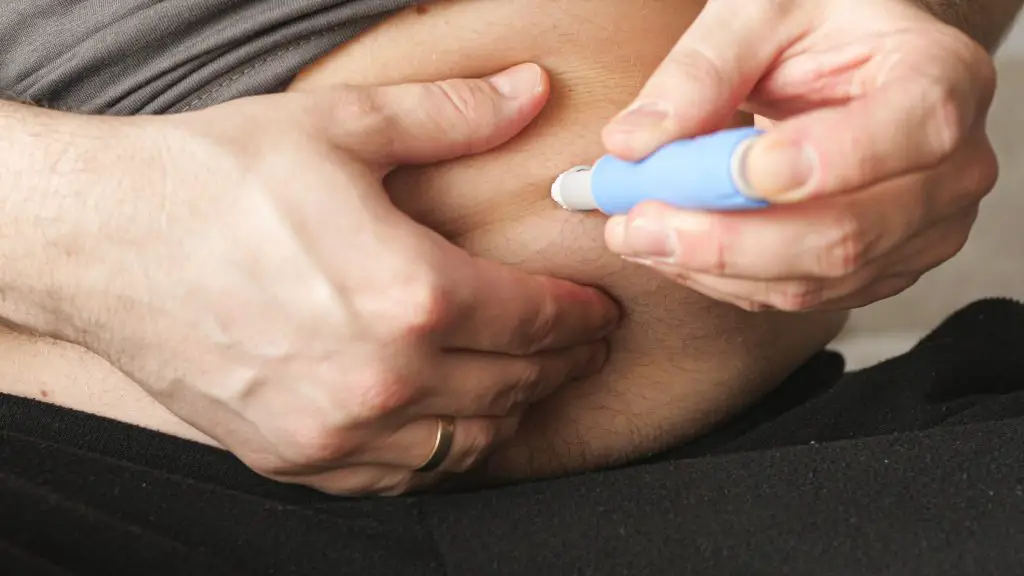Type 2 diabetes is a chronic condition that affects millions of people worldwide. It can be challenging to control blood sugar levels and prevent complications associated with the disease.
However, advancements in medical science have led to the development of new medications, such as Ozempic, that offer hope for better diabetes management.
Ozempic is a once-weekly injectable medication that has been approved by the FDA for the treatment of type 2 diabetes. It works by mimicking the effects of a hormone called GLP-1, which helps regulate blood sugar levels.
This article will provide an introduction to Ozempic, including how it works, its benefits, and potential side effects, so you can decide if it’s the right choice for you.
What Happens if You Take Too Much Ozempic: Signs and Symptoms

Taking too much Ozempic, a medication used to treat type 2 diabetes, can lead to an overdose. An overdose occurs when the body is exposed to a higher amount of medication than it can handle.
While it is important to follow the prescribed dosage and instructions provided by a healthcare professional, accidental or intentional overdoses can occur. Here are some signs and symptoms to watch out for if you suspect an Ozempic overdose:
1. Hypoglycemia:
Ozempic helps lower blood sugar levels, and an overdose can lead to excessively low blood sugar levels, known as hypoglycemia.
Symptoms may include confusion, dizziness, shakiness, excessive sweating, irritability, weakness, blurred vision, headache, and difficulty concentrating.
2. Nausea and vomiting:
Taking too much Ozempic can cause nausea and vomiting as the body reacts to the overload of the medication, trying to eliminate it.
3. Digestive issues:
Overdosing on Ozempic may result in gastrointestinal problems such as diarrhea, stomach cramps, and excessive gas.
4. Dehydration:
Ozempic overdose can cause dehydration due to increased urination and fluid loss. Symptoms might include dry mouth, thirst, dark-colored urine, and fatigue.
5. Abnormal heart rate:
In some cases, an Ozempic overdose may lead to an irregular heartbeat or other cardiac abnormalities. If you experience a rapid heartbeat, palpitations, or chest pain, seek immediate medical attention.
6. Blood pressure fluctuations:
Unusually high or low blood pressure may occur as a result of taking too much Ozempic. This can manifest as dizziness, lightheadedness, or even fainting.
If you suspect an Ozempic overdose or experience any of these symptoms, it is crucial to seek medical attention immediately.
Contact your healthcare provider or call emergency services for proper evaluation and treatment. Remember, proper medication management and adherence to prescribed dosages are essential for your safety and well-being.
Ozempic side effects
Like any medication, Ozempic can cause side effects in some individuals. While not everyone will experience these side effects, it is important to be aware of them. Common side effects of Ozempic may include:
1. Gastrointestinal issues:
Some individuals may experience nausea, vomiting, diarrhea, or stomach pain. These symptoms are usually mild and tend to improve over time as the body adjusts to the medication.
2. Decreased appetite:
Ozempic can cause a decrease in appetite, which may result in weight loss. This effect can be beneficial for individuals with type 2 diabetes who are overweight, but it’s important to monitor weight loss and consult with a healthcare provider if it becomes excessive.
3. Hypoglycemia:
Ozempic stimulates the release of insulin and lowers blood sugar levels. In some cases, this can lead to hypoglycemia (low blood sugar), which can cause symptoms such as dizziness, shakiness, confusion, sweating, and weakness.
It is important to monitor blood sugar levels regularly and be aware of the signs of hypoglycemia when taking Ozempic.
4. Injection site reactions:
Like other injectable medications, Ozempic can sometimes cause injection site reactions, such as redness, pain, itching, or swelling at the injection site. These reactions are usually mild and resolve on their own.
5. Thyroid tumors:
In animal studies, Ozempic has shown an increased risk of thyroid tumors. However, it is important to note that this risk has not been established in humans and further studies are needed.
It is important to discuss any concerns or potential side effects with your healthcare provider. They can help determine if Ozempic is the right medication for you and provide guidance on managing any side effects that may occur.
Are there any long-term effects after overdosing on Ozempic?
While an Ozempic overdose can lead to immediate symptoms and complications, there have been reports of potential long-term effects associated with the medication.
It is important to note that these effects are relatively rare but have been observed in some cases. The long-term effects may include:
1. Thyroid cancer:
In animal studies, Ozempic has been associated with an increased risk of thyroid tumors. However, the significance of this finding in humans is uncertain.
It is essential to discuss any concerns about thyroid health with your healthcare provider, especially if you have a history of thyroid problems or are at a higher risk for developing thyroid cancer.
2. Pancreatitis:
Pancreatitis, inflammation of the pancreas, has been reported in individuals taking Ozempic. This condition can be serious and requires immediate medical attention.
Symptoms of pancreatitis can include severe abdominal pain, nausea, vomiting, and fever. If you experience any of these symptoms, it is crucial to seek medical help as soon as possible.
3. Vision problems:
While relatively rare, there have been reports of Ozempic potentially causing vision problems in some individuals. These vision problems may include blurred vision, changes in vision, or diabetic retinopathy worsening.
If you experience any changes in your vision while taking Ozempic, it is important to inform your healthcare provider promptly.
It is important to remember that these long-term effects are not common and that the benefits of taking Ozempic in managing type 2 diabetes usually outweigh the risks.
However, it is always advisable to discuss any concerns with your healthcare provider to fully understand the potential risks and benefits of this medication.
Additionally, if you suspect an overdose or experience any severe or persistent side effects, seeking immediate medical attention is crucial.
Treatment for an Ozempic overdose
If you suspect an Ozempic overdose or experience severe symptoms, it is important to seek immediate medical attention.
Overdosing on Ozempic can lead to low blood sugar (hypoglycemia) or other complications that require professional care. While waiting for medical assistance, here are some steps you can take:
1. Eat smaller meals:
If you are experiencing symptoms of hypoglycemia, consuming smaller, more frequent meals can help stabilize your blood sugar levels. Include a combination of carbohydrates and protein in your meals to provide a steady source of energy.
2. Eat a bland diet:
To minimize gastrointestinal symptoms, such as nausea and vomiting, opt for a bland and easily digestible diet.
This may include foods like toast, crackers, rice, boiled chicken, and clear soups. Avoid spicy, greasy, or heavy foods that can potentially worsen digestive issues.
3. Stay hydrated:
Dehydration can occur due to increased urination caused by Ozempic overdose. Drink plenty of fluids, such as water or clear liquids, to maintain hydration. Avoid alcohol and caffeinated beverages, as they may further dehydrate you.
Remember, these steps are not substitutes for proper medical care. It is essential to consult with a healthcare professional for a thorough evaluation and appropriate treatment of an Ozempic overdose.
They will be able to provide personalized guidance based on your specific situation.
FAQ’s
What is the maximum dosing for Ozempic?
The maximum dosing for Ozempic, a medication used to treat type 2 diabetes, is 1 mg once weekly. This dosage is typically prescribed for patients who have not achieved their desired blood sugar levels with lower doses.
It is important to follow the dosing instructions provided by your healthcare professional and not exceed the recommended maximum dose.
Regular monitoring of blood sugar levels and consultation with your doctor is necessary to determine the appropriate dosing for your individual needs.
What foods to avoid on Ozempic?
When taking Ozempic, it is important to be mindful of certain foods that may not be compatible with the medication. Some foods to avoid while on Ozempic include high-fat and high-sugar foods, as these can lead to weight gain and elevated blood sugar levels.
It is also recommended to limit alcohol consumption, as it can increase the risk of low blood sugar. Additionally, processed foods, sugary beverages, and refined carbohydrates should be avoided or consumed in moderation.
It is always best to consult with a healthcare professional or nutritionist for personalized dietary recommendations while on Ozempic.
Why am I not losing weight with Ozempic?
Losing weight can be a complex process, and there can be several reasons why someone may not be losing weight while taking Ozempic.
Firstly, it is important to note that every individual’s body responds differently to medications, and weight loss may vary from person to person. Additionally, weight loss is not solely dependent on medication but also requires a balanced diet and regular exercise.
If someone is not seeing the desired weight loss results with Ozempic, it is advisable to consult a healthcare professional who can evaluate the individual’s specific circumstances and provide personalized guidance on how to achieve their weight loss goals.
How long can you safely take Ozempic?
The safety and duration of taking Ozempic, a prescription medication used to treat type 2 diabetes, should be determined by a healthcare professional.
Ozempic is typically prescribed as a long-term treatment option to help control blood sugar levels. The duration of its use will depend on various factors, including the individual’s response to the medication, overall health, and any potential side effects.
It is important to follow the guidance of a healthcare provider and regularly monitor blood sugar levels while taking Ozempic to ensure its continued effectiveness and safety.
Additional Posts:


